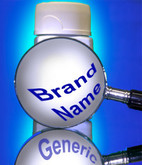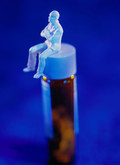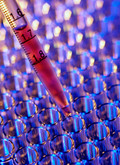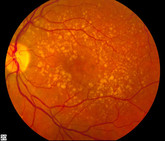Biosimilars
Positive phase III results for Samsung Bioepis biosimilars
Results of phase III clinical studies of candidate etanercept biosimilar SB4 infliximab biosimilar SB2 and adalimumab biosimilar SB5 have all met their primary endpoints, according to an announcement on 7 November 2015 by Samsung Bioepis (a Biogen and Samsung joint venture).
Celltrion submits rituximab biosimilar application to EMA
South Korean biotechnology company Celltrion has, according to Business Korea, submitted a second biosimilar application to the European Medicines Agency (EMA).
Biologicals patent expiries
Biosimilars are now a reality. The European Medicines Agency (EMA) approved its first biosimilar back in 2006 [1] and, with the increasing price of new biologicals and continuing pressure on healthcare budgets, biosimilars are expected to make up an increasing share of the biologicals market.
Biosimilars and interchangeability
In a study by researchers from the Tufts Center for the Study of Drug Development (Tufts CSDD) the question of interchangeability around the world was one of the topics investigated [1].
Economic considerations for rheumatoid arthritis biosimilars
In the paper by Gulácsi et al. [1], the authors stated that biosimilars have the potential to reduce costs and increase patient access to biologicals in the treatment of rheumatoid arthritis (RA) and other chronic inflammatory rheumatic and bowel diseases.
Formycon starts phase III trial for ranibizumab biosimilar
German biosimilars companies Formycon and Bioeq announced on 7 October 2015 that they had initiated a pivotal phase III clinical trial with their candidate ranibizumab biosimilar (FYB201).
Non-originator low molecular weight heparins: generics or biosimilars
First developed in the 1980s, low molecular weight heparins (LMWHs) are complex anticoagulants derived from porcine intestinal mucosa and are used in the treatment of deep vein thrombosis and pulmonary embolism. Heparin sodium’s anticoagulant activity is mainly governed by its ability to bind to the serine protease inhibitor antithrombin (AT). In this sense, heparin sodium functions as a cofactor for AT by modifying its conformation, thereby accelerating the inactivation of clotting factors.
Positive phase I results for adalimumab biosimilar
In an announcement on 28 October 2015, biopharmaceutical specialist Boehringer Ingelheim Pharmaceuticals (Boehringer Ingelheim) claimed that results from a phase I study of its adalimumab biosimilar (BI 695501) had ‘demonstrated pharmacokinetic bioequivalence’ to Humira (adalimumab).
Biosimilar naming and AE reporting
How will biosimilar naming affect the ability to attribute adverse events (AEs) to a particular product? This is a question researchers from the Tufts Center for the Study of Drug Development (Tufts CSDD) sought to answer [1].
Biosimilars of ranibizumab
Last update: 4 December 2020
Ranibizumab is a monoclonal antibody fragment created from the same parent mouse antibody as bevacizumab. Ranibizumab inhibits angiogenesis (the formation of new blood vessels) by inhibiting vascular endothelial growth factor A (VEGF-A), a mechanism similar to bevacizumab [1].













